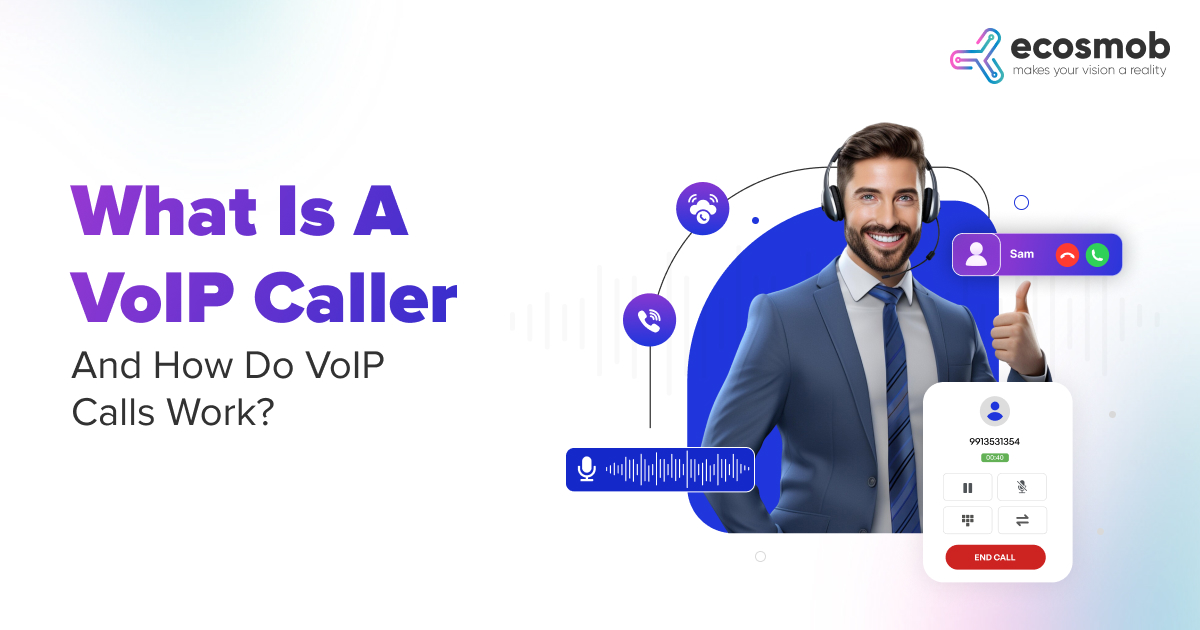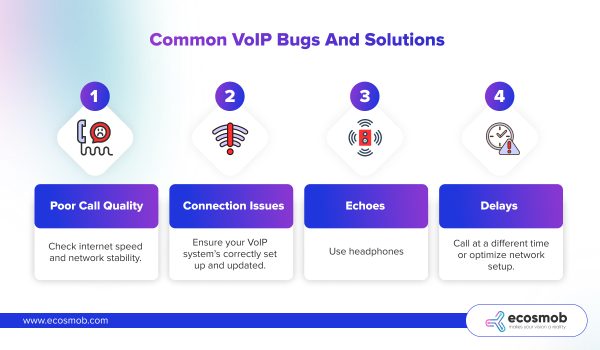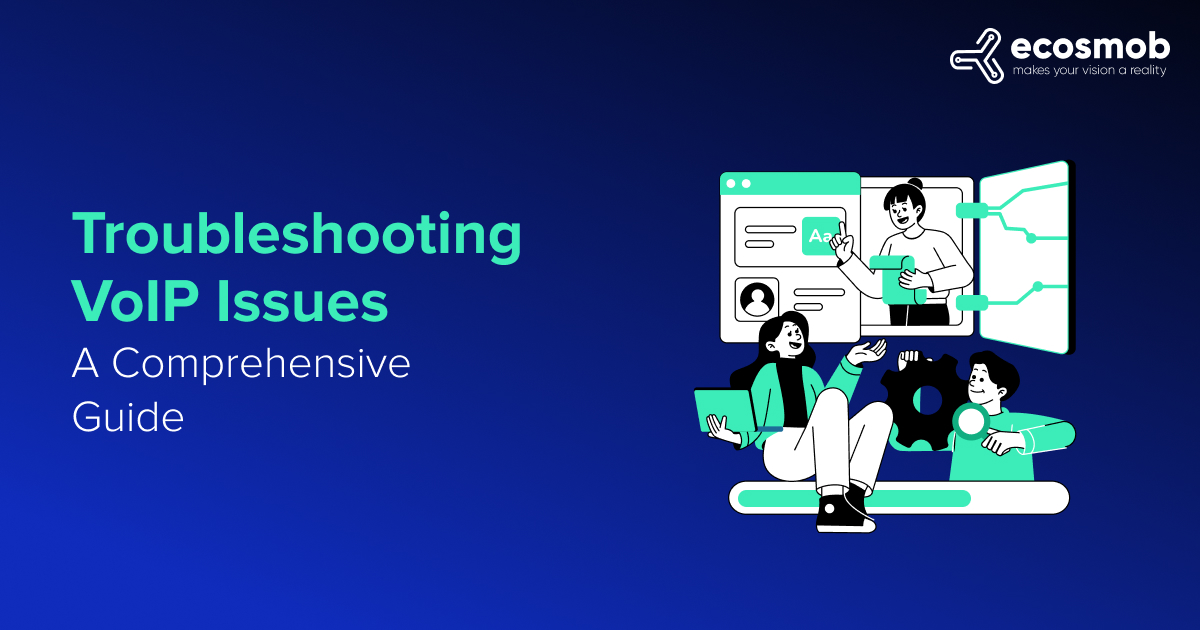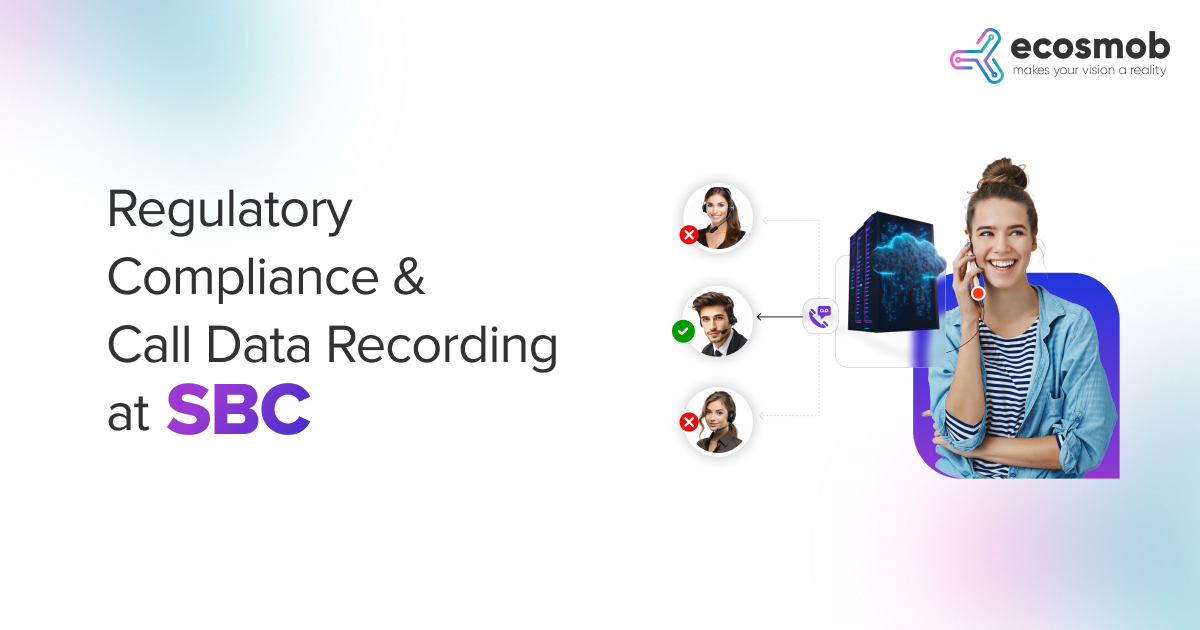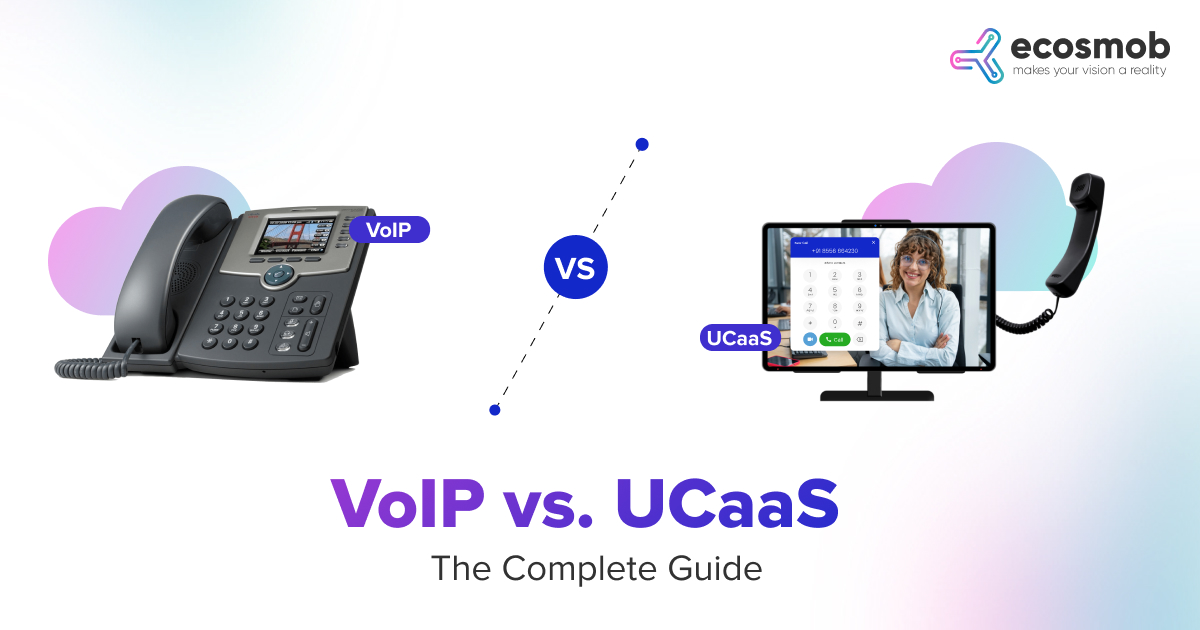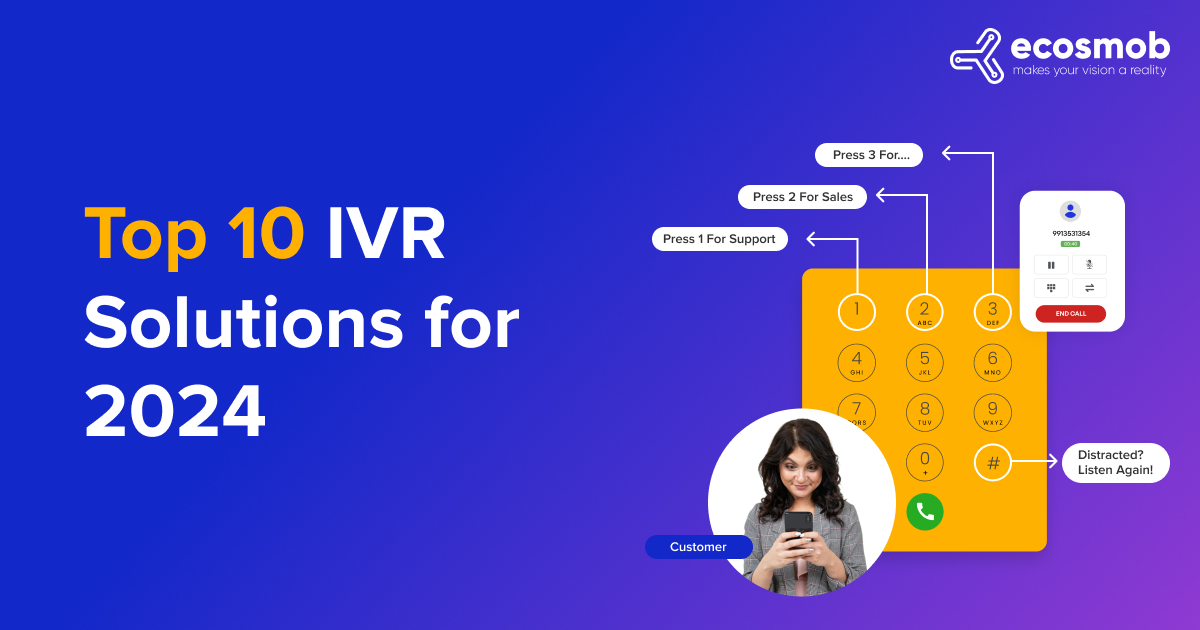Have you received a call whose caller ID said “VoIP caller”? Did you start looking for what VoIP caller means? Well, you have landed at the right place. In this blog, we will explain everything you need to know about VoIP calling and how VoIP technology can be helpful for your business. But first, let’s understand who a VoIP caller is.
Are you thinking about upgrading to a VoIP phone system?
What Is A VoIP Caller?
VoIP, or voice-over-internet protocol, is a technology that enables you to place calls online as opposed to over a traditional phone line. ( Check out this comparative guide on Traditional vs. Digital vs. VoIP Phone System for more clarity). The VoIP technology will link you to any phone in the globe by turning your voice into a digital signal transmitted over the internet. It is turned back into a standard phone signal connecting you with whom you are calling.
When using the VoIP platform, you dial a phone or a VoIP number and call it online. The receiver’s phone will ring as if it were coming from another phone, with the possible exception that the caller ID may read “VoIP caller.”
VoIP caller software provides multiple capabilities, including caller identification and screening, simple digital file exchange, etc.
As per Future Market Insights, the VoIP services market revenue by the end of 2021 was US$ 123.3 Bn. The VoIP services market is expected to reach US$ 354.7 Bn by 2032. Additionally, it is estimated to grow at a CAGR of 10.2% for 2022-2032.
How Do VoIP Callers Make Calls?
A VoIP caller sends your audio signal over a broadband internet connection.
VoIP technology transforms your speech into data packets transmitted across internet fibers until they reach the receiver. The data packet is converted into audio and connects directly with the receiver if you contact another VoIP phone line. If you call traditional phones, the data packets are transformed into ordinary phone signals before they reach the user.
VoIP phone systems use TCP/IP and Intelligent Endpoint protocols. Your audio is divided into data packets by TCP and sent over the internet’s fiber optic connections by IP. The receiver is located and given signals using the Intelligent Endpoint protocols.
IN SIMPLE WORDS,
Think of VoIP as sending a voice message over the internet. Like sending an email, your voice is turned into data, sent across the web, and then turned back into a voice for the person on the other end to hear.
Types of VoIP Numbers
VoIP numbers come in two types – fixed and non-fixed.
Fixed VoIP numbers are linked to a specific geographical address. This linkage provides a level of security and is often required by businesses that need a solid local presence.
Real-life example:
A local bakery using a fixed VoIP number ensures customers calling in will recognize the area code, reinforcing the bakery’s community connection.
Non-Fixed VoIP Numbers offer flexibility as they are not tied to a specific location. This means you can choose a number that suits your business needs, whether it’s sticking with a local presence or going global without the physical ties.
They’re perfect for digital nomads, international businesses, or anyone needing a global presence without the overhead of physical offices.
Real-life example:
Imagine a freelance graphic designer based in New York who serves clients in London and Tokyo. A non-fixed VoIP number allows the designer to establish local contact numbers in each city, making it easier for clients to reach out.
How To Use VoIP Caller Technology?
If you need VoIP for personal settings, you can easily download one of the VoIP caller software available in the market and start using VoIP technology for your business. All you need is an internet connection and a device.
However, if you need a custom VoIP solution for your business, you need to choose reliable VoIP development services to develop one for you. Additionally, VoIP solution development can benefit your business more than you think. You can include appealing, affordable features like call forwarding, auto-attendant, and call encryption, which may make them a better alternative to a traditional phone line. Check out: 90 Best VoIP Features To Grow Your Business.
Encountering issues with your VoIP service can be frustrating, but don’t worry! Most problems have simple fixes that can get you back to clear calls in no time. Here are some simple, practical solutions to common VoIP calling problems:
- Poor Call Quality: Check your internet speed and network stability. Being a VoIP caller, you require a stable connection. Consider upgrading your internet plan or using Quality of Service settings to prioritize voice traffic.
- Connection Issues: Ensure your VoIP caller software or hardware is correctly set up and you’re using the latest version. Restarting your device or software can often resolve connection problems.
- Echoes: Use headphones to minimize echo.
- Delays: Delays often indicate network congestion—try calling at a different time or optimizing your network setup.
Also, integrating VoIP into your business doesn’t mean parting ways with your existing traditional phone system overnight. You can enjoy the best of both worlds with a hybrid enterprise VoIP solution.
This approach involves setting up a VoIP gateway that connects your traditional system to the internet, enabling VoIP calls alongside conventional telephony. This setup allows for a gradual transition, letting your business test and adapt to VoIP functionalities while maintaining its current infrastructure.
How To Identify And Block VoIP Callers?
A user gets given a VoIP number that they can use to access VoIP services. You can recognize VoIP caller software by turning on caller ID or checking the VoIP number. Activating caller ID software, such as Truecaller, causes the ID to be automatically looked up and displayed.
You may trace the caller’s number while on the line during a call, ask your VoIP service provider for more information, or use a reverse phone lookup tool.
If you are struggling to choose the right VoIP solution provider in the first place, the guide How to Choose the Best VoIP Solutions Provider (2024) can help you make an informed decision.
How To Block A VoIP Caller Spam?
Utilizing the blocking tools on your smartphone is the most straightforward approach to prevent VoIP spam. Each device has a different policy. Selecting the number and clicking “Block number” is sometimes all required. In other cases, you might need to contact your supplier of a traditional phone system and request that a number be blocked.
Who Uses VoIP Caller Technology?
VoIP caller technology has become more popular recently. Both individuals and companies may attest to that.
VoIP Caller Technology For Residents
Unknowingly, you have probably already used VoIP caller technology. Have you ever placed a call using WhatsApp, FaceTime, or Skype? If so, you have experience with VoIP technologies.
More and more people are switching to VoIP for their home phone service as these services gain popularity.
Upgrading your home phone service to a VoIP system is easy and affordable. You’ll get crystal-clear call quality and advanced features, and you can even keep your number. Also, you can dramatically reduce your monthly phone bills!
Real-life example:
A person uses VoIP calling to call their family abroad, enjoying lower costs and clearer call quality than traditional international calling options.
VoIP Caller Technology For Businesses
Businesses of all sizes and shapes have recently switched to VoIP calling technologies. Scaling VoIP systems is simple. They are, therefore, the ideal choice for both small family enterprises and the biggest corporations on the globe.
VoIP callers have become increasingly common as firms have adopted remote work. It’s expected that this growth will continue. The variety of ways organizations can use VoIP development services is one of the driving forces behind it.
Businesses can, for instance, handle client calls using automated call routing and a virtual receptionist. Companies can also leverage their internal VoIP systems to make it simple for employees to hold teleconferences or videoconferences.
Real-life example:
A startup uses VoIP to keep costs ( check out: How Small Businesses Can Save Cost With VoIP Phone Systems?) low while maintaining clear communication with remote team members across different continents, leveraging features like video conferencing and shared files to enhance collaboration.
Benefits Of VoIP Calling For Businesses
Due to its numerous benefits over traditional phone systems, VoIP caller technology is becoming more and more popular. VoIP caller software offers several benefits to businesses:
- Accelerates Scalability: Businesses may quickly add extra lines using the same VoIP number rather than hiring professionals to install a traditional phone line when they want to expand.
- Boost Brand Awareness: Businesses can use bespoke caller IDs and tags thanks to VoIP caller software providers. These IDs can stay the same no matter which staff calls a customer. These IDs can stay the same. A consistent caller ID increases brand familiarity and awareness.
- Easy File Sharing: Users of VoIP caller software can share digital files while on the phone. Documents, pictures, audio files, and videos fall under this category. The receiver’s equipment will determine how files are transmitted.
- Allows Large-Scale Campaigns: Outbound calls are widespread among organizations to generate and nurture prospects through cold calling and follow-ups. With the help of a VoIP system, keeping in touch with people on the phone is less expensive. You can connect to anyone from anywhere across the world.
- Lowers Spending: VoIP development services are less expensive than traditional phone services and don’t need as much expensive hardware. Businesses can download the necessary software to use their current phones and computers. Additionally, complimentary essential VoIP services are available.
- Better Remote Team Collaboration: VoIP solution developments make it simple and affordable to stay in touch with your team and schedule meetings for businesses with lots of distant workers. VoIP technology is more affordable than traditional phone service. Companies with different locations frequently configure business phone systems so that employees can only use work phones and computers in their offices.
VoIP vs. Traditional Phone Services: A Cost Comparison
| VoIP | Traditional Phone Service | |
| Initial Setup Cost | Low | High |
| Monthly Service Cost | Lower, based on subscription | Higher, fixed rates |
| Maintenance Cost | Minimal to none | Can be high |
| Call Charges | Lower, especially for international calls | Higher, especially for international calls |
| Scalability | Easy to add users | Requires physical hardware |
Also, here are some VoIP calling features your business would greatly benefit from:
- Auto-attendant: Directs callers to the appropriate department without human intervention.
- Call Queuing: Manages incoming calls efficiently, holding them in a queue until they can be answered.
- Voicemail to Email: Transcribes voicemail messages and sends them directly to your email, ensuring you never miss important information.
- Conference Calling: Easily set up calls with multiple participants, fostering collaboration.
- Call Recording: Automatically or manually record calls for compliance, training, or quality assurance purposes.
Wrapping Up
As you can see from the above list, VoIP caller software provides many advantages. Additionally, VoIP essentially has no downsides. Around the world, sophisticated companies are adopting this powerful technology as they see its significant competitive benefits.
We have the custom VoIP solutions services, such as unified communications, contact center software, and more. Your business needs to benefit from all of VoIP technology’s advantages and switch to a work-from-anywhere environment.
Find out more about the benefits of VoIP
FAQs
What differentiates a VoIP caller from a traditional caller?
VoIP callers use the internet for communication, offering flexibility and lower costs, unlike traditional callers who rely on fixed phone lines.
What equipment do I need to start making VoIP calls?
To make VoIP calls, you need a stable internet connection, a VoIP service subscription, and a compatible device such as a VoIP phone, a computer with a headset, or a mobile device.
What should I do if I experience call quality issues with VoIP?
For VoIP call quality issues, check your internet speed, reduce bandwidth usage during calls, or consult your VoIP provider for specific quality-of-service settings.
Can VoIP integrate with my business software?
Many VoIP systems offer integration with business software, enhancing productivity and streamlining workflows by connecting call data with CRM systems, email, and more.
How does VoIP handle emergency calls?
VoIP supports emergency calls; however, providing your location to your VoIP service provider is crucial, guaranteeing that emergency responders can quickly find you when necessary.
